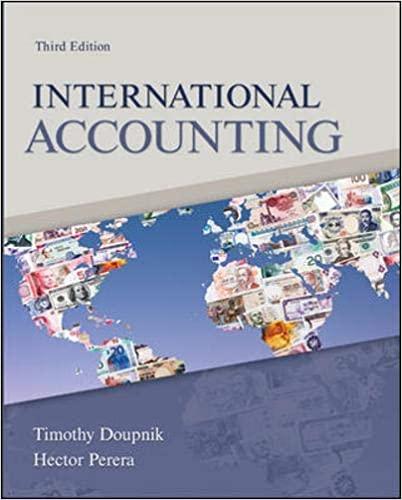Question
Greater Metropolitan Health Systems (GMHS) owns two skilled care nursing homes, one assisted living facility, and a freestanding adult day care center. GMHS is relatively
Greater Metropolitan Health Systems (GMHS) owns two skilled care nursing homes, one assisted living facility, and a freestanding adult day care center. GMHS is relatively new and the CEO, Jordan Shelby, is seeking ways to expand the company's health care outreach. An inpatient drug rehab facility, Turning Leaf Drug Treatment Hospital, has come up for sale. Turning Leaf specializes in treating substance abuse issues in adults over the age of 60. According to a report from the Substance Abuse and Mental Health Services Administration, substance abuse issues among older adults are steadily increasing. Hence, in the future, the number of elders seeking treatment options will also continue to rise. Shelby believes that the acquisition of Turning Leaf will be an additional source of revenue for GMHS and a source of referrals for long-term care services within the system.
An analysis of Turning Leaf's financial operations shows some problems. Annual expenses are running $50,000 over budget; the entire negative variance is in food service. Revenues also show an annual shortfall of $170,000, mainly because of cuts in reimbursement from the state. Shelby thinks that if the facility can deal with cutsin expenses, it can overcome the revenue shortfall by expanding GMHS's marketing strategies to increase the number of patient days. If this can be achieved, Turning Leaf will become profitable.
In a management meeting to discuss the acquisition of Turning Leaf, the following key points were made:
To keep client satisfaction level high, no cost reductions should be made in the regular food cost.
Snacks are a separate expense item for food service. Clients recovering from various types of addictions often experience cravings for sugar, caffeine, and junk food. However, simply eliminating snacks is not an option because, in some cases, cravings are attributed to the pharmaceuticals some clients must use.
Clients are given all day access to snacks and coffee. In the past, clients paid for their own snacks, but management at Turning Leaf stopped charging for snacks shortly after the state cut personal allowance funds by 7% for those on public assistance.
Shelby's ears perked up when his chief financial officer (CFO) remarked, "Their financial control systems are ridiculous. We must not only get in line with the budget, but also charge the patients $0.50 per person per day for the snacks to offset the costs. My calculations show that we can reduce the snack expense by close to $80,000."
Table: Expenses for Snacks at Turning Leaf Drug Treatment Hospital
Budgeted patient days (annual)
29,450
Actual patient days (annual)
25,540
Budgeted cost of snacks
$122,410
Actual cost of snacks and coffee
$172,584
Breakdown of monthly cost of snacks
Snack bags available to clients
$5,067
Floor stocks
$2,852
Snack bags for new admissions
$1,113
Special diet bags
$2,913
Specialized snacks
$2,437
Monthly Total
$14,382
Questions
1.Do you agree with the CFO's statement? Run your own numbers to prove your point.
2.What is the advantage and/or disadvantage of charging clients $0.50 per day? Explain your rationale.
3.Generally, special diet and specialized snacks are more expensive than regular snacks. If GMHS can negotiate a discount of 4% on special diet and specialized snacks and 10% on regular snacks from the vendors, will the profitability improve? Explain.
Step by Step Solution
There are 3 Steps involved in it
Step: 1

Get Instant Access to Expert-Tailored Solutions
See step-by-step solutions with expert insights and AI powered tools for academic success
Step: 2

Step: 3

Ace Your Homework with AI
Get the answers you need in no time with our AI-driven, step-by-step assistance
Get Started


